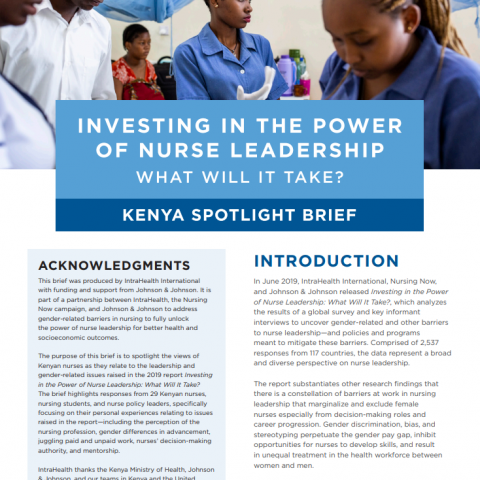Where We Work
See our interactive map

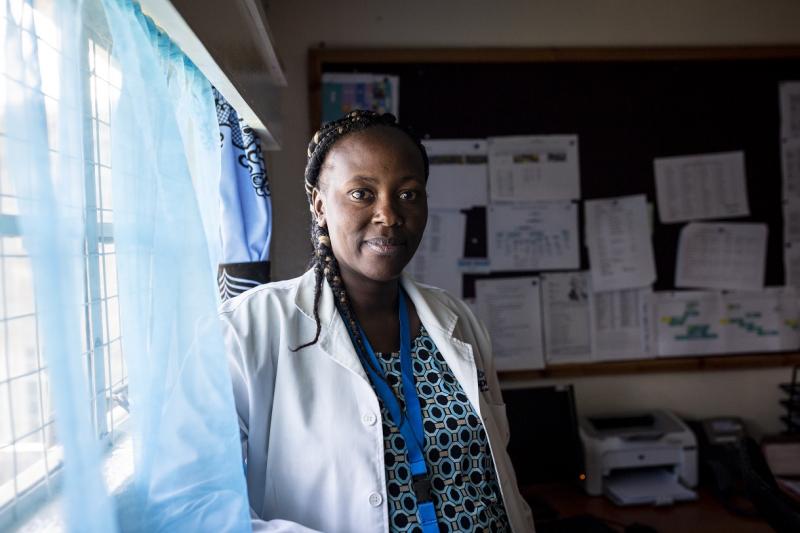
Photo by Patrick Meinhardt for IntraHealth International.
Part of my leadership role includes advocacy.
Dr. Peris Kariuki is the principal of the Kijabe College of Health Sciences in Kenya. In her role, she collaborates with our USAID-funded Human Resources for Health (HRH) Kenya Program and has facilitated a curriculum review for the Kenya Registered Community Health Nurse and Clinical Medicine Diploma courses, developed a gender policy for affirmative action, and has helped clinical instructors and faculty update their knowledge and skills to make sure students are ready to enter the health workforce and provide HIV services.
She sat down with us to talk about her experiences as a nurse, teacher, and advocate and what it’s like to lead the next generation of nursing students.
This piece is part of our special content series, Nurse Leadership: In Their Own Words.
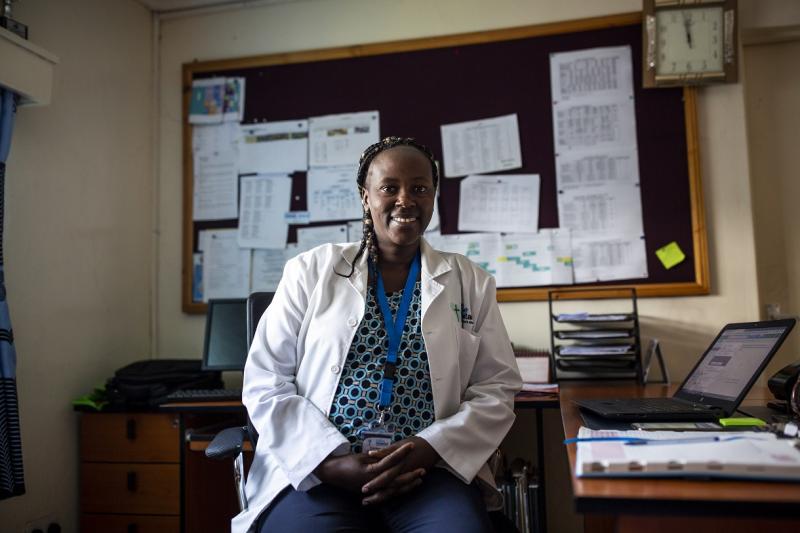
Photo by Patrick Meinhardt for IntraHealth International.
I've been a nurse for 15 years. I lost a brother—he was not sick, he just collapsed. I wanted to help him because I think it was a heart attack. I had read about chest compressions, but I didn't know how to do them. So I think that was the trigger for me to want to go into a health-related course.
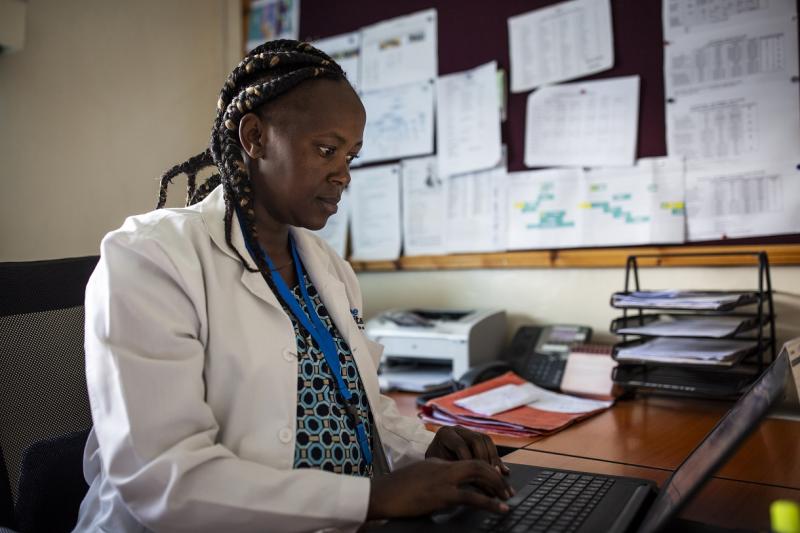
Photo by Patrick Meinhardt for IntraHealth International.
I did my bachelor's in nursing followed by an internship and then worked in a hospital for two years. I progressed from being a ward nurse to a clinical instructor to a tutor, head of department, then deputy principal, and now principal.
It was a challenge for nurses with bachelor's degrees to get a place in the hospital. Most of the degree holders were moved into schools because most of the hospitals were not willing to pay extra [for a bachelor’s degree]. So for the nurses with bachelor’s degrees, we would take any position instead of staying without work
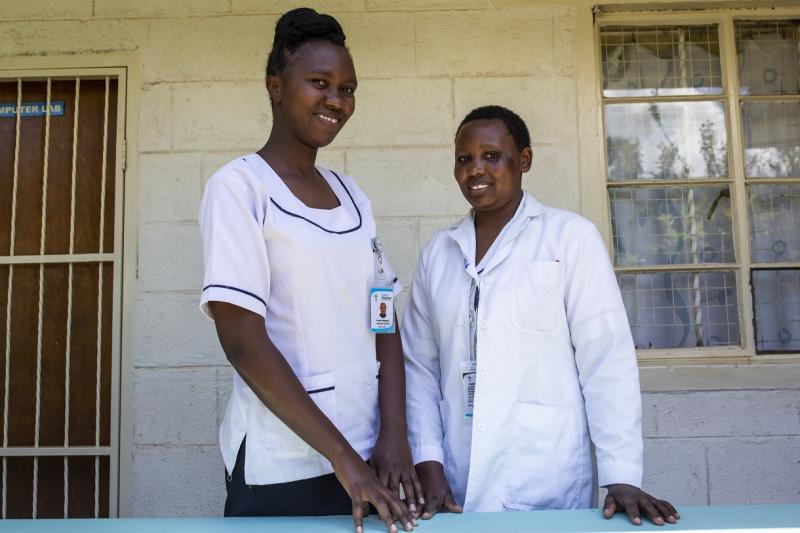
Photo by Patrick Meinhardt for IntraHealth International.
Nurses are sometimes denied the positions that they qualify for just because they are nurses. And the decision-makers may feel a doctor is more qualified for a position, even if a nurse would be a good fit. I’ve seen that kind of discrimination.
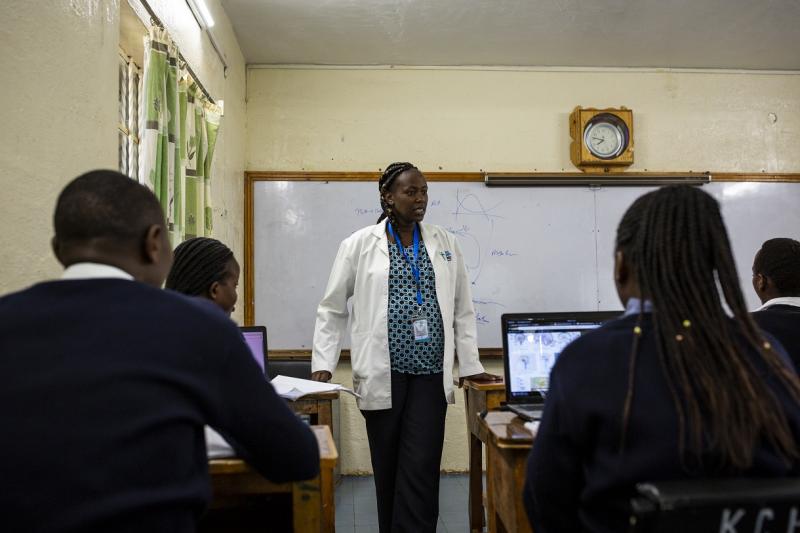
Photo by Patrick Meinhardt for IntraHealth International.
But we know that the community appreciates nurses. There's appreciation for what we do and even looking at gender, currently we have even more males coming in to do nursing. That also tells us that the community is changing their thinking that nursing is only for females.
So we have community support but at the college, we also have policies in place to ensure all students are supported. Take a student who becomes pregnant, for example. They have to go home and deliver their baby. So we give them time to be away and then to come back and continue after they have had some time with the baby. And we have a support mechanism to make sure they have somebody to leave the baby with while they’re in class.
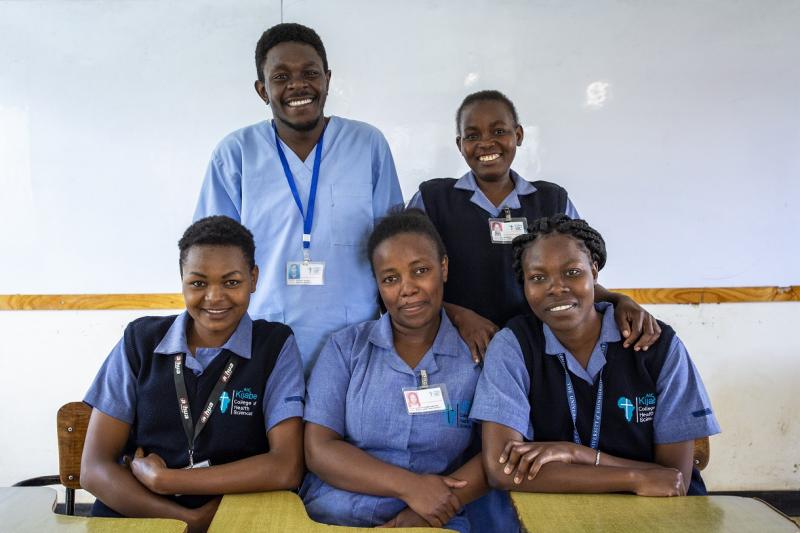
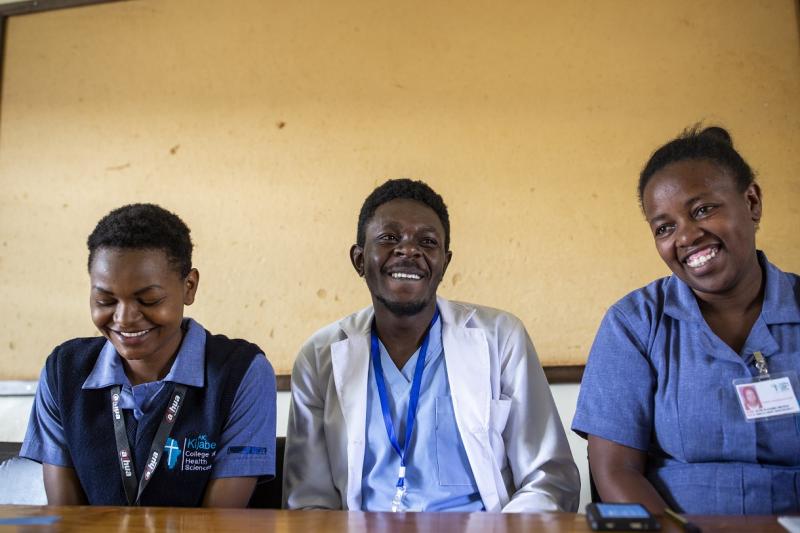
Photos by Patrick Meinhardt for IntraHealth International.
We also ensure we have male and female representatives in each class and we ensure that both genders are given equal opportunity. Although even if it would be our desire to have an admission that is 50/50 on gender, sometimes we don't have control of that. So our ratio is one male to two females.
But that dynamic changes when you look at the higher degrees. Like in the anesthesia program, there are usually more men than women. More men prefer to do that course. I think because it's associated with the fears and women are not as bold to take up that role.
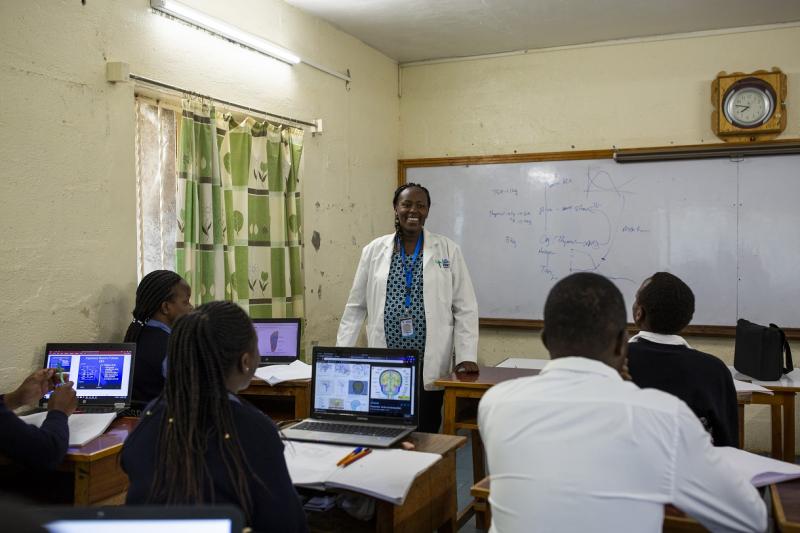
Photo by Patrick Meinhardt for IntraHealth International.
We also train our students. They all participate in a course that focuses on leadership, because especially for the nurses, once they graduate, they're expected to take leadership positions. So they are taught leadership skills and are evaluated on clinical areas to see how they utilize their management principles as they take leadership position in the ward.
Leadership training is important because, for example, after I took this leadership role, I had people that I interacted with who were able to give me guidance here and there. But I wouldn't say leadership training was in place for me. But over the years I've been able to go back to school and take some of the leadership courses.
When I took up this role, it was a new job which I had not been exposed to before, so I needed mentorship on the financial management part especially, but also how to handle human resources and disciplinary issues and all that.
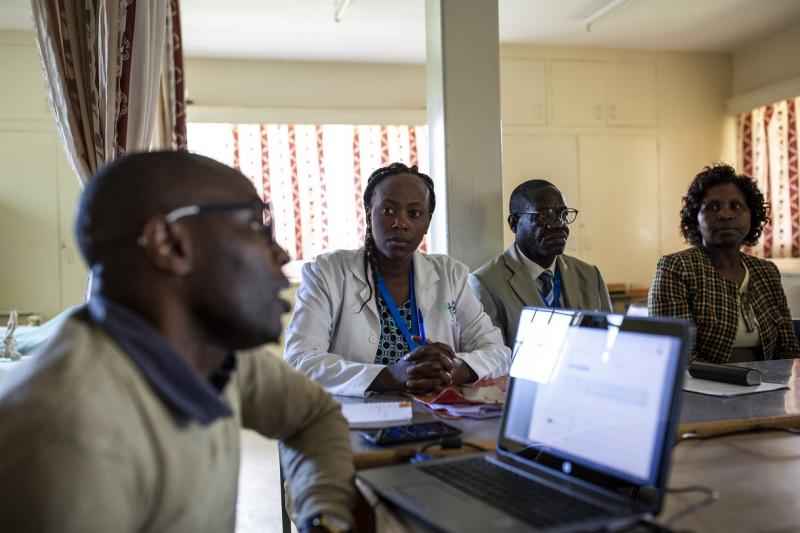
Photo by Patrick Meinhardt for IntraHealth International.
Part of my leadership role includes advocacy. At a national level we interact and engage with a regulatory body whenever there is any issue. Once we’ve identified a problem, we know which office to go to. Because I can also go and have a hearing even now with the Ministry [of Health] and the offices that are there in case there's an issue.
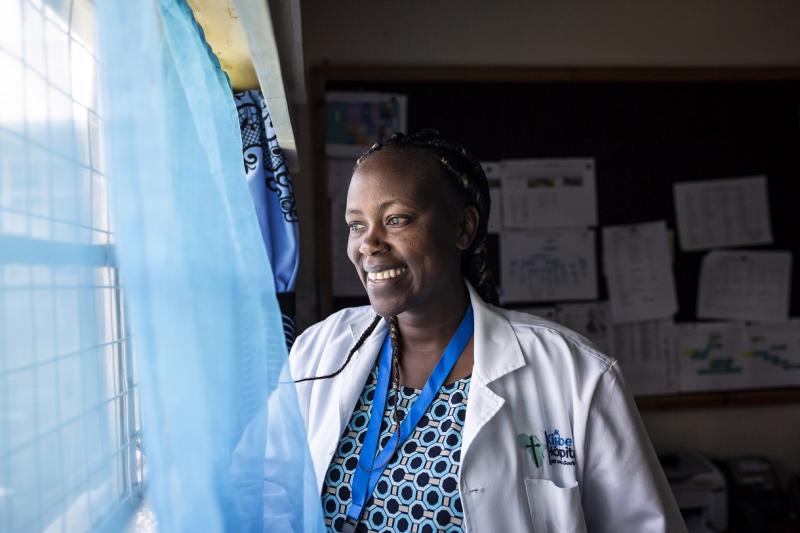
Photo by Patrick Meinhardt for IntraHealth International.
In my role as principal, I often give nurses advice and I think the best advice is to accept responsibility. Sometimes you may want to delegate something to somebody and they see that as an additional work and are not willing to take it up. But it's through taking up that role or that responsibility and challenging yourself that you get to know the beats or the areas of improvement and growth.
So my advice for the young nurses is not to be shy about moving forward and interacting with those people who are in the leadership positions. It’s good to want to know more about what they do and identify their areas of growth or improvement. Because it's from that point that they can then identify the gaps they have and can act on areas or where they need to grow or improve.
READ what nurses in Kenya say about leadership and gender-related issues in Investing in the Power of Nurse Leadership: Kenya Spotlight Brief.
Carol Bales, Wycliffe Omaanya, and Samantha Rick interviewed Dr. Peris Karuiki just before the COVID-19 pandemic lock down. Katherine Seaton edited Peris’s interview for clarity and length. All photos by Patrick Meinhardt for IntraHealth International. All work related to this post and the Kenya brief funded by a grant from Johnson & Johnson Foundation.
Get the latest updates from the blog and eNews
Read what nurses in Kenya say about nursing leadership in Investing in the Power of Nurse Leadership: Kenya Spotlight Brief. Twenty-nine nurses, nursing students, and nurse policy leaders shared their personal experiences including gender differences in advancement, juggling paid and unpaid work, decision-making authority, and mentorship.
